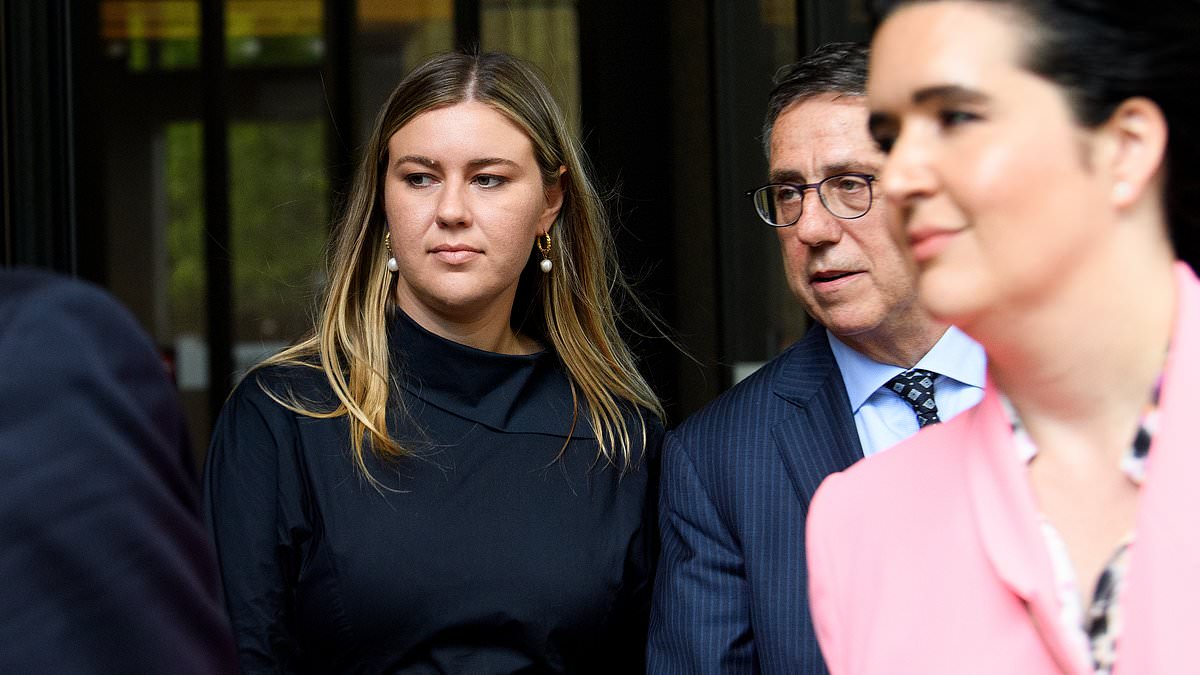Brittany Higgins will not give evidence in Linda Reynolds’ defamation case against her, a court has heard.
The Liberal senator is suing Ms Higgins, her former staffer, over a social media posts that allege she was not supported following her rape in Parliament House in March 2019.
Ms Reynolds strongly denies the allegations and claims the posts damaged her reputation.
Ms Higgins was set to fly from her home in France to Perth to give evidence in the WA Supreme Court next week, but on Monday her barrister Rachael Young SC told the court her testimony was not needed to win the case.
She tendered medical documents with confidential details about Ms Higgins’ health.
The senator’s barrister Martin Bennett said he would analyse the documents carefully.
It has now been confirmed she will not take the witness stand, which means her evidence will not be tested against Ms Reynolds’ evidence.
Moments before court wrapped on Monday, Ms Young said: ‘The defence will not be calling Ms Higgins.’
She said there were three reasons behind the decision.
‘The first is the defendant is not obliged to go into oral evidence,’ she said.
‘The second is … we don’t think we need to call Ms Higgins to satisfy Your Honour as to being successful in these proceedings.
‘The third is a matter of Ms Higgins’ medical state.’
Without Ms Higgins’ evidence, the trial will run ahead of schedule.
Closing submissions could be moved forward by a week.
On Monday, Liberal Party WA selection committee chairman Jeremy Buxton told the court Ms Reynolds would have ‘struggled’ to get her name on the ballot for the next election.
He said serving members who are publicly seen to have messed up, even if the claims are not true, it works against them.
In some cases, Liberal senators in WA have been demoted.
Mr Buxton said some people may have judged the senator more harshly as a woman who did not support a young female colleague.
‘It would have put her at a disadvantage to other colleagues who did not have to answer those questions,’ he said.
‘She would have been struggling to get the third position [on the ballot paper].’
The trial continues.
